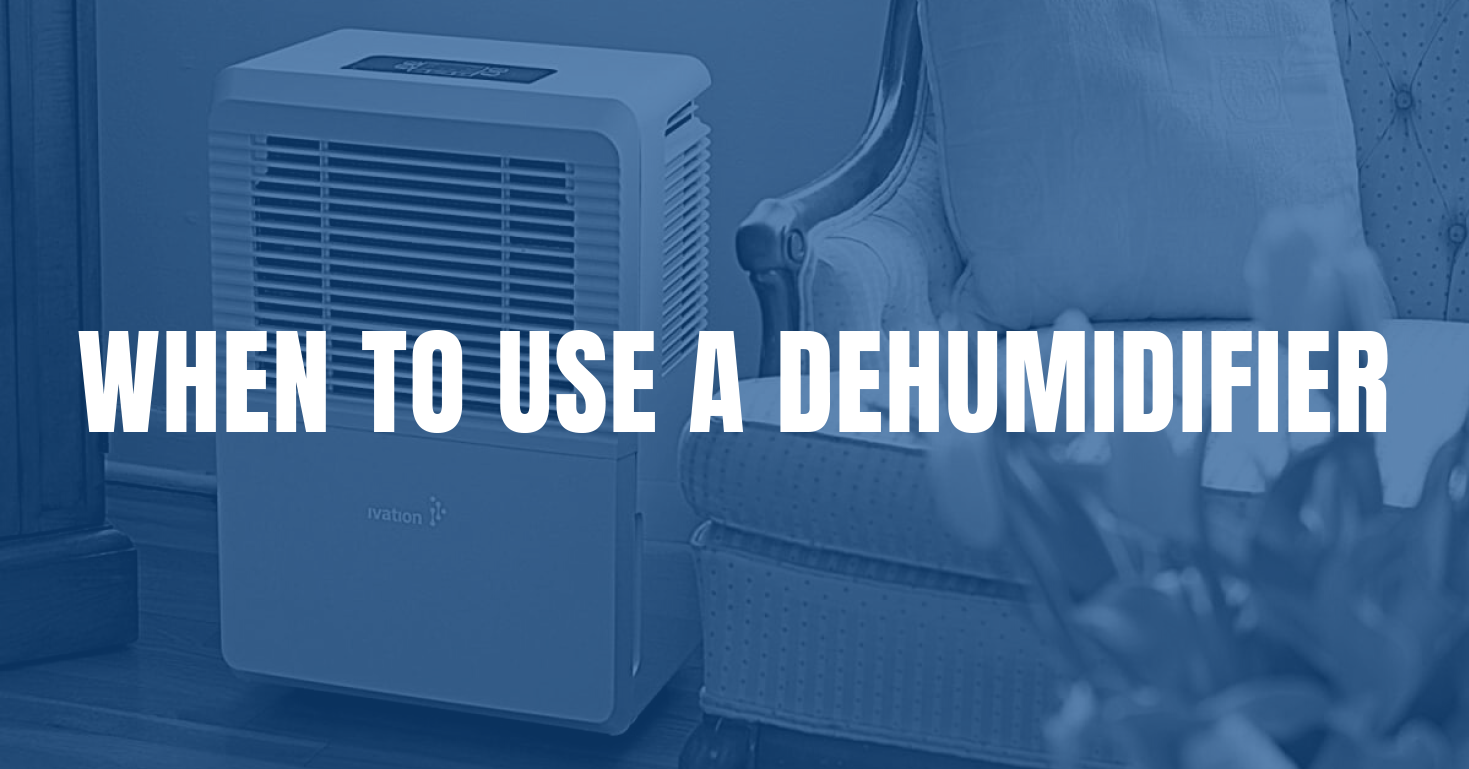When to use a dehumidifier

Controlling the humidity in your home can be a challenge. Both high and low humidity levels can cause discomfort and possibly lead to some serious health issues.
Dehumidifiers are used when humidity levels are high to remove excess moisture in the air. They help manage humidity during sticky summers and in damp rooms like basements, crawl spaces, and garages. Some homes may only experience moisture issues at certain times of the year, while others need to control them year-round.
How a dehumidifier works
When air loses heat, it begins to lose its capacity to retain moisture. A dehumidifier pulls hot and humid air over a cold coil that condenses the moisture into liquid. The water is removed via a drainpipe. The dry air is then exhausted back into the room.
When to use a dehumidifier
An accurate way to measure the humidity in your home is with a hygrometer. Most home improvement stores sell them for less than $20. If the humidity level is greater than 50%, your home may benefit from a dehumidifier
A few other ways to tell if the humidity levels are too high in your home are:
Excess window condensation
Condensation build-up on the interior glass of windows or patio doors is a typical sign of too much moisture in a room.
Mold spots on ceiling or corners of walls
Bathrooms without exhaust fans commonly have mold issues because the rising steam causes moisture on the ceilings and walls. Excess moisture can cause black mold, which can lead to serious health issues. If you notice mold in your home, contact a professional as soon as possible.
Musty smells
Basements, garages, and laundry rooms are often prone to musty odors. The cause can be anything from a construction sealing issue to groundwater seepage.
How a dehumidifier can help
By removing unwanted moisture from the air, a dehumidifier can help prevent the build-up of mold, mildew, and dust mites in your home, all of which are common allergens. Dehumidifiers reduce these allergens improving your family’s health and indoor air quality.
Dehumidifiers also help prevent structural damage to your home. Basements and crawl spaces are prone to dampness, which can rot your home’s foundation.
Running a dehumidifier with an air conditioner lowers energy costs. An air conditioner works by removing moisture and heat from the air. The more moisture that is in the air, the harder the air conditioner must work. Dehumidification not only lowers the humidity in your home, but it also reduces the need for cooling because you will feel more comfortable.
Choosing a dehumidifier
When choosing a dehumidifier for your home, you need to consider the size of the room, as well as the humidity levels. There are stand-alone units for small and large rooms and whole-home units.
Stand-alone units work well but require a lot of upkeep and you may need to put several throughout your home. Burkholder’s HVAC offers an alternative solution, whole-home dehumidifiers. These units are installed as part of your home’s heating and cooling system. The unit automatically controls and adjusts the humidity level in your home based on outdoor and indoor temperatures. With automatic control, you will always know what the humidity level is in your home and enjoy peace of mind knowing that it’s being maintained correctly.
Contact us today to schedule a visit from one of our Comfort Specialists to learn more about whole-home dehumidifiers and how they can help control the humidity levels in your home.
